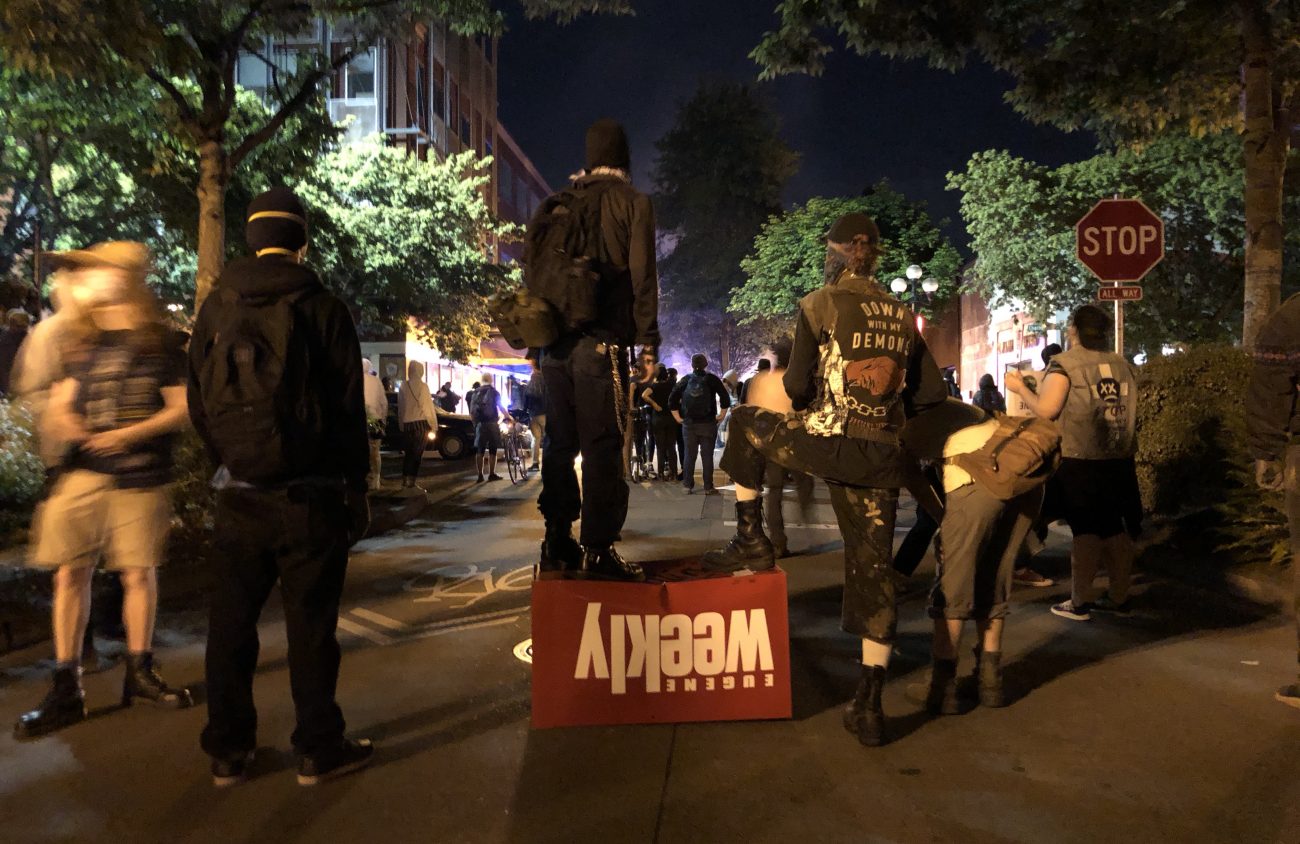On Oct. 21, the City of Eugene agreed to settle a federal civil rights case brought by the Civil Liberties Defense Center (CLDC) and Eugene Weekly reporter Henry Houston. The lawsuit was first filed after Eugene Police officers threw an explosive tear gas canister and shot pepper balls at Houston while he was covering a protest on May 31, according to a press release by the CLDC.
During the mediation, Houston requested several remedies for the incident, including a proposal to increase transparency with the Eugene Police Department (EPD) and city regarding protests, discipline for the officers involved in assaulting him, changes in police policy when interacting with journalists and the end of the use of BearCats or other military vehicles during protests.
The city ignored those requests.
Houston settled the case for “a relatively modest sum despite injuries that sent him to the emergency room,” the press release said.
“An opportunity for justice isn’t always available for people of color, protesters, or journalists who have been targeted and injured by overzealous police. So I was privileged in that I was able to file a federal lawsuit against the city of Eugene and the police,” Houston said in the press release. “It’s unfortunate that this settlement did not create the much-needed policy changes that led me to file this suit, and I would have considered less money if the city had offered a change in policing. But I hope that money talks and that this will prevent future unchecked police aggression on journalists and protesters who are exercising their First Amendment rights.”
In reviewing eyewitness statements and video footage of the incident, the CLDC said that the assault on Houston is a part of a larger pattern with EPD officers during that weekend, as they fired various chemical and impact munitions at people “without provocation.” EPD had justified using those munitions because they claimed people were violating the curfew, which the CLDC says is unconstitutional.
“The unconstitutional curfew orders provided cover for a police force apparently eager to assault protestors and to use their military surplus gear to roll around Eugene terrorizing residents,” the CLDC said.
The CLDC added that by refusing to consider Houston’s proposed policy changes, the city showed that it was “committed to business as usual” even if in this case it means police misconduct and civil rights violations.
Houston intends to donate a portion of the settlement to organizations like CAHOOTS and to other reporters facing government intimidation tactics.
Laura Hammond, the community relations director for the city of Eugene, sent a statement via email about the lawsuit. “We are pleased to have quickly reached a mutually agreeable resolution to this matter,” the email said.
The Oregon Chapter of the Society of Professional Journalists also provided a statement on the situation. They said that although the settlement is a step forward, it’s also a reminder that law enforcement still has work to do when it comes to press freedom.
“As protests and demonstrations took place across the U.S. in recent months, journalists played a crucial role documenting a historic moment and informing the public about the longstanding injustices activists sought to address. In Oregon, journalists have been arrested, intimidated and, as in Houston’s case, tear-gassed while doing so,” SPJ said.
SPJ also emphasized the vitality of freedom of the press in a democracy, saying that government agencies must be held accountable when they try to limit those freedoms.
“We applaud reporter Henry Houston’s attempt to drive the city of Eugene and local law enforcement officials toward a more equitable and appropriate relationship with the press. While the city has opted not to implement his suggestions and instead settle, we hope that it rethinks its position in the future.”
